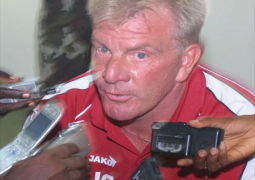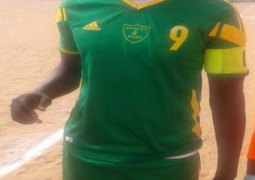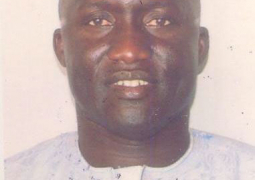The visiting delegation from the World Council of Churches last Thursday met with the committee of Banjul Muslim leaders at the Atlantic Hotel in
The meeting was meant to strengthen the relations between the two main religions in the country - Islam and Christianity.
The visiting delegation is in the country as guest of the
Leading the delegation, Professor W. Peter Stephens, Bishop of Methodist Church of The Gambia thanked the Muslims leaders for the reception.
The
According to Professor Stephens, the World Council of Churches comprises of a fellowship of some 350 major churches across the world including the Orthodox, Anglican and the Methodist churches.
He added that the aforesaid churches gathered to establish the World Council of Churches in 1948.
The delegation has come to look at the ways their church relates to other believers and to see how the church is doing with the community in such areas as education and agriculture in a bid to incorporating it into the council of churches.
Speaking on behalf of the delegates, Bishop Ivan M. Abraham, expressed gratitude to the Muslims leaders.
He noted that they have no doubt that when they become part of them they would learn from the interfaith relations from their experience for the maintenance of peace.
Speaking earlier, the Imam Ratib of
He said the interfaith relation between Muslims and Christians in The Gambia is one the world can emulate.
“Allah the creator has bonded us together that each religion has its own scriptures which have to be followed to guard us,” he said, adding that it is religion that brings people together to have peace and harmony.
The Imam Ratib further challenged religious leaders that they have a responsibility to work together to live in peace.
For his part, Alhagie A. Faal, chairman of the Committee of Banjul Muslim Leaders, also congratulated the delegates for their visit.
He assured the visitors of his committee’s support to help incorporate the
According to him, the interfaith relations between Muslims and Christians in The Gambia are unique and are of family and socio-cultural ties.
Chairman Faal further expressed delight in the Methodists, who continue to render invaluable assistance in education, health and other areas. “It will be useful for the council of churches to incorporate interfaith relations into their agenda,” he said.





